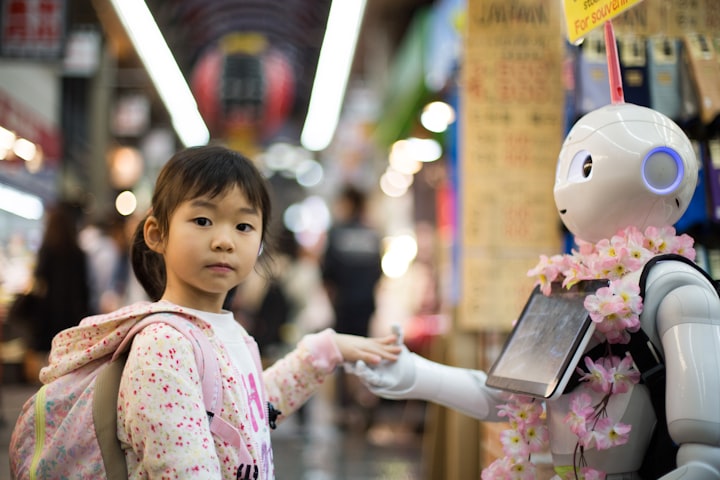
Title: The Rise of Artificial Intelligence: Exploring the Potential Impacts on Society
Introduction (100 words):
Artificial Intelligence (AI) has rapidly advanced in recent years, revolutionizing various aspects of our lives. As AI technologies continue to evolve, there are concerns and debates about its potential to "take over the world." In this article, we delve into the topic, exploring the advancements, capabilities, and potential impacts of AI on society. While acknowledging the possibilities and challenges associated with AI, it is important to take a balanced approach and consider the ethical considerations and human collaboration necessary to harness the full potential of AI for the betterment of humanity.
AI Advancements and Capabilities (200 words):
Artificial Intelligence has made significant strides, thanks to advancements in machine learning, deep learning, and natural language processing. AI systems have demonstrated remarkable abilities in tasks such as image and speech recognition, language translation, and autonomous decision-making. These advancements have fueled concerns about AI surpassing human intelligence and taking control. However, it is crucial to understand that AI remains limited to specific domains and lacks the comprehensive general intelligence possessed by humans.
Automation and the Future of Work (200 words):
One of the significant impacts of AI is automation, which has the potential to transform industries and reshape the job market. AI-powered technologies can automate routine and repetitive tasks, leading to increased efficiency and productivity. This automation may result in job displacement in certain sectors, but it also creates new opportunities for innovation and the development of new industries. While AI may eliminate certain jobs, it is expected to create new roles that require human skills such as creativity, critical thinking, and emotional intelligence.
Ethical Considerations and Responsible AI Development (200 words):
As AI continues to progress, ethical considerations become paramount. It is essential to develop AI systems that align with human values, prioritize fairness, transparency, and accountability. AI should be designed to augment human capabilities rather than replace them. Ensuring privacy, security, and data protection is critical to prevent misuse of AI technologies. Ongoing discussions and collaborations between policymakers, researchers, and industry experts are crucial to establishing ethical frameworks and regulations that govern AI development and deployment.
AI and Decision-Making (200 words):
AI algorithms are increasingly being used in decision-making processes across sectors such as healthcare, finance, and criminal justice. While AI can bring efficiency and accuracy, there are concerns about potential biases and lack of interpretability in algorithmic decision-making. It is crucial to ensure that AI systems are fair, unbiased, and accountable. Building transparency into AI models and enabling human oversight are essential to mitigate the risks and ensure responsible use of AI in decision-making processes.
Collaboration Between Humans and AI (200 words):
Rather than envisioning AI as a threat, a more productive approach is to focus on collaboration between humans and AI. AI systems can assist humans in complex tasks, augmenting their capabilities and enabling them to achieve more. By leveraging AI's analytical power and processing capabilities, humans can focus on higher-level thinking, creativity, and problem-solving. Embracing a collaborative mindset allows us to harness the potential of AI as a tool for innovation, scientific advancements, and social progress.
Conclusion (100 words):
While concerns about AI "taking over the world" exist, it is crucial to approach the subject with a balanced perspective. AI has tremendous potential to transform various aspects of society, but it also poses challenges that require thoughtful consideration. By focusing on responsible AI development, ethical considerations, and collaboration between humans and AI, we can navigate the path forward and harness the benefits of AI while addressing potential risks. Ultimately, the future lies in our ability to shape AI technologies to align with human values and aspirations, leading to a more inclusive and prosperous society.
About the Creator
evidence
I GO ONLINE LOOKING FOR REAL DATA TO FORM INTO AN ATICLE THAT REALLY HELP PEOPLE





Comments
There are no comments for this story
Be the first to respond and start the conversation.